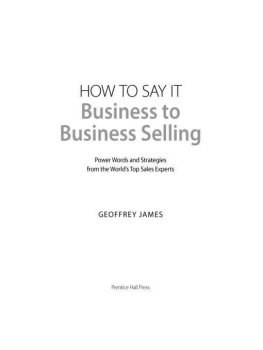Banking and finance are the foundation of every business, whether large or small. Yet money people are sometimes seen as only a necessary evil in business. The innovators and inspired leaders get the credit, but sooner or later, every business needs financing, and everyone in business needs some familiarity with the language and communication style of the custodians of cash and credit. In four chapters on banking and finance, we will seek to gain some of that familiarity. Here are the words and phrases for the first of these chapters, followed by a conversation and then the definitions.
CFO
Exposure
Capital
Arrearage
Sandbagging
Overhead
Physical plant
Accounts receivable
Accounts payable
Phoning it in
CEO
Subsidiary
Bean counting
Quarterly reviews
Interface
Incentive
Cautionary tale
ROI
Wooly mammoth
Whale
Per se
Metric
Fiscal year
Ratios
Trend lines
Heres a conversation about the role of financial executives and accountants in the environment of a large corporation. As someone one said, You cant live with them and you cant live without them.
Sometimes executives on the financial side of large corporations dont get respect as innovators or generators of profits. Has that been your experience at all?
Well, CFOs definitely participate in the decision making process that generates revenue. But other people on the financial side may be less involved, so sometimes they do get less respect.
Why does that happen?
For one thing, financial people can seem hesitant. They have to speak out against reckless exposure. They see their job as trying to preserve capital rather than growing capital. And of course theyre generally very averse to arrearage. That kind of caution can be mistaken for sandbagging.
Sometimes finance people are seen as nothing more than overhead, as if they were part of the physical plant. Its as if they just mechanically process accounts receivable and accounts payable. But you cant run a company without those functions. Its not just phoning it in.
So how can a person on the financial side advance in a corporate environment?
Being well-connected is part of it. Make yourself useful to the CEO. That way, when a subsidiary manager makes a proposal, the CEO can say, "Why don't you talk to my friend in the bean counting department?
Also, let people know that their quarterly reviews will be affected by how they interface with finance. They need to have an incentive to take you seriously.
What kind of feedback should a good finance person offer, beyond cautionary tales about risk and debt?
Well, ROI is always the basic goal. But how do you define ROI? Can you precisely quantify the difference between a wooly mammoth and a whale?
Numbers per se are not always the best metric for example, only comparing this fiscal year to the last one can be deceptive. Ratios are more informative. For instance, the ratio of sales expenses to sales income can be revealing. Trend lines can also give you information that raw numbers don't provide.
CFO
Definition: CFO is an abbreviation for Chief Financial Officer. In a business or corporation, the CFO is a senior executive with overall financial responsibility for the entire enterprise. This includes planning new projects, supervising current ones, and dealing with any remaining concerns from projects in the past. The CFO works closely with the Chief Executive Officer and is usually the second highest ranked executive in a company.
Sentence Example: The new CFO needed some time to become acquainted with our firms eccentric accounting methods, which arent the methods taught in business schools.
EXPOSURE
Definition: Exposure is the possibility or probability of financial damage to an individual or a company. Exposure can be attached to investments, hiring decisions, expansion possibilities, or virtually any other change in the way a company does business. Exposure is typically something that companies seek to avoid, but since the possibility of gain is often directly tied to the presence of exposure, risk can also be a sign of opportunity.
Sentence Example: Introducing a new sugary candy bar to the retail market carries significant exposure, because the public is becoming more conscious of weight-related issues.
CAPITAL
Definition: Capital is the wealth of a business or individual. Capital can exist in many forms, including cash, real estate, or lines of credit. Generally speaking, capital refers to assets that are readily available for investment purposes.
Sentence Example: She put significant capital into long term investments, which she looked upon as a personal retirement fund.
ARREARAGE
Definition: Arrearage refers to debt owed by one party to another, with the expectation that the borrowed amount will be paid back. Usually the time frame for repaying arrearage is clearly stated, and usually there is interest paid on the debts original amount. Many businesses depend heavily on debt and couldnt survive without italthough excessive arrearage in a company is viewed as a significant weakness by potential buyers or investors.
Sentence Example: In order to clear his arrearage as soon as possible, Brian decided to pay twice the minimum amount on his monthly credit card bills.













